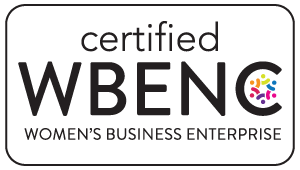AI in the Healthcare Industry – What Providers Need to Know
AI in healthcare involves the use of machines to analyze and act on medical data. For healthcare providers, new developments and applications of artificial intelligence (AI) enable better diagnoses, predictions and evidence-based recommendations, among other benefits.
However, when considering using AI in medicine, providers must also weigh ethical, safety, equity, privacy and liability considerations. They must also consider the limitations of AI tools.
Evolution of artificial intelligence
The growth, application and usage of artificial intelligence has surged in recent years. The concept of AI has existed since the 1950s. But the release of ChatGPT in 2022 jump-started public conversations and interest in the tools.
Research indicates that the use of AI technology in healthcare will continue to grow. However, the human aspects of connection, expertise, understanding details and making decisions are critical for good patient care.
Yale researchers believe the best scenario is “a partnership between human experts and AI … to reduce human error and clarify AI’s judgment process.”
Medical facilities and their providers should carefully consider the challenges, misuse potential and ethical issues of AI in healthcare. Let’s take a look:
AI in healthcare today
In 1964, healthcare professionals first used AI with ELIZA, the first chatbot. Today, machine learning, deep learning and data science are changing healthcare. The use of these AI applications is decreasing spending, improving patient outcomes and delivering better access to care.
Currently, healthcare applications utilize AI in a broad range of services, such as:
- Medical imaging analysis and diagnosis – Healthcare providers use AI to analyze medical images like x-rays, CT scans, MRIs and images of the skin. AI is able to detect abnormalities, assist in diagnoses and offer treatment recommendations. Ophthalmology and pathology can also use similar AI tools.
- Signal processing – AI solutions can detect and alert clinicians about anomalies during other testing like electrocardiograms, audiology screens and electroencephalography.
- Electronic health records (EHRs) – AI analyzes and extracts information from EHRs to assist clinicians with decision-making, diagnoses and treatment plans.
- Robotics in surgical procedures – AI helps physicians accurately perform precise and complex tasks.
- Predictive analysis – AI is very good at analyzing and identifying patterns in patient data. This helps to predict disease progression and reduce the risk of readmission.
- Clinical decision support – AI can review information provided and make recommendations, alert clinicians about possible drug interactions and offer warnings about potential adverse reactions or events.
- Remote patient monitoring – Patient monitoring is often expensive when provided by hospitals and post-acute facilities. Remote patient monitoring could move some of this care to the home or a less-acute observation unit.
The Journal of the American Medical Association recently published an article by David M. Cutler, PhD, addressing the topic of AI in healthcare. The article asserts that AI may grow as a “substitute for rote activities like routine office work.” But in clinical care, AI is “… more likely to complement clinicians than substitute for them.” This is why Cutler says, “… learning how to integrate human decision-making with software is extremely important.”
“It is important to be clear about what AI is not good at,” Cutler warns. “Machine learning can be terrific at finding patterns in data. It can scan clinical trial outputs and identify subgroups with larger-than-average treatment effects. [But] making causal determinations will still require classic hypothesis testing.”
AI won’t replace the human element
Human relationships and connections will always be a core aspect of healthcare. People provide and accept care based on trust. Patients place their lives and well-being into the hands of healthcare providers, believing clinicians will work for their good.
AI and machines have no moral or ethical qualms. Human judgment enables healthcare providers to perceive nuances and subtleties. This ability can change the course of treatment and provide the best and most appropriate care for patients.
Additionally, patients are not ready to fully accept AI as a healthcare partner.
“… On a personal level, there’s significant discomfort among Americans with the idea of AI being used in their own healthcare,” according to a recent study by Pew Research. “Six-in-ten U.S. adults say they would feel uncomfortable if their own health care provider relied on artificial intelligence to … diagnose disease and recommend treatments.”
So, healthcare providers should look to AI to make their jobs easier, not to replace them.
Relationship building and a good bedside manner are more important now than ever. Tinkbird believes in the value of the patient-provider relationship, and we look for that in the doctors and staff we place.
Developing skills to leverage AI in healthcare
Learning to harness and best utilize AI in healthcare is a worthwhile endeavor for clinicians. Based on specialty, the tools and required skills will vary, but learning fundamental AI basics will be of value.
Healthcare providers should become familiar with concepts, terms and ways to integrate AI data. They should also regularly consider how AI use impacts healthcare ethics, patient privacy, safety, equity and liability.
Applications for AI in healthcare offer the potential to do great good and benefit the lives of many. Tinkbird encourages providers to continue learning and growing in their areas of expertise. Learning to utilize AI tools in healthcare is one such opportunity.
We also recognize the high value of a good bedside manner and personal relationships in the medical field. We look for doctors, physician assistants, nurse practitioners and registered nurses who offer high-quality care.
Choose to work with the experienced healthcare staffing team at Tinkbird. Learn more about healthcare placement options with Tinkbird today.









